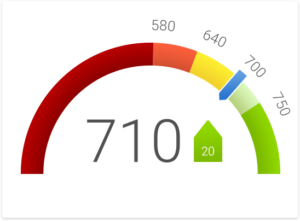 Today’s top story: Don’t let friends and family pick your financial advisor. Also in the news: A month with the 50/30/20 budget plan, what the confusing terms in your 401(k) plan mean, and a growing number of Americans have more credit card debt than savings.
Today’s top story: Don’t let friends and family pick your financial advisor. Also in the news: A month with the 50/30/20 budget plan, what the confusing terms in your 401(k) plan mean, and a growing number of Americans have more credit card debt than savings.
Don’t Let Friends and Family Pick Your Financial Advisor
Due diligence is essential.
Budget Diary: Navigating Holiday Spending and Debt Payments
A month with the 50/30/20 budget.
What This Confusing Term in Your 401(k) Plan Means
Deciphering the strange terms.
A growing number of Americans have more credit-card debt than savings
And it’s getting worse.
 Today’s top story: Furloughed workers face potential damage to their credit scores. Also in the news: A bill could expand the financial literacy of students, 8 budget types for businesses, and 6 practical ways to pay off credit card debt.
Today’s top story: Furloughed workers face potential damage to their credit scores. Also in the news: A bill could expand the financial literacy of students, 8 budget types for businesses, and 6 practical ways to pay off credit card debt.  Today’s top story: How to manage student loan debt without making it worse. Also in the news: How to get credit when you have none, why it may be time to stop itemizing your tax deductions, and the state most burdened by credit card debt.
Today’s top story: How to manage student loan debt without making it worse. Also in the news: How to get credit when you have none, why it may be time to stop itemizing your tax deductions, and the state most burdened by credit card debt. Today’s top story: New scoring could help credit-shy millennials. Also in the news: Giving yourself the gift of a $0 credit card balance, 5 key steps to joining the 401(k) Millionaires Club, and why you should only share your credit card info at a hotel at the front desk.
Today’s top story: New scoring could help credit-shy millennials. Also in the news: Giving yourself the gift of a $0 credit card balance, 5 key steps to joining the 401(k) Millionaires Club, and why you should only share your credit card info at a hotel at the front desk.